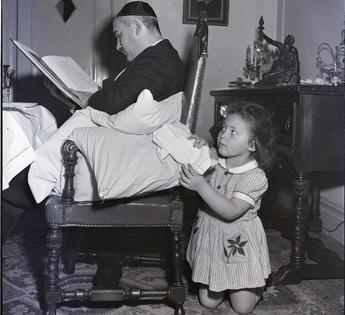Passover is a Jewish holiday remembering sorrowful events and celebrating hope for a better future
Published in News & Features
Jewish families will gather for Passover this year in circumstances that will, like the celebration itself, reflect on dark times while looking ahead toward better ones to come.
The holiday lasts from the evening of April 22 to the evening of April 30 in 2024. The first two nights of the celebration involve a Seder, a ritual meal bringing together the family.
As a scholar of the Bible and ancient Judaism, I believe Passover is a particularly poignant time to recognize the tragedies of the past year and offer hope for the future.
The Passover is a festival found in the Bible that commemorates the escape of the Israelites, led by Moses, from Egypt as recounted in the book of Exodus. Prior to the departure of the enslaved Israelites, God delivered a series of plagues on Egypt, culminating in the killing of the firstborn son in every Egyptian family, including the firstborn of the livestock.
The Israelites, however, place the blood of a lamb on their doorposts to signal that the “destroyer,” an angel responsible for the killing, should skip, or pass over, those homes.
This story came to function as a powerful narrative of persecution and liberation for Jewish people. The command to celebrate and remember the exodus from Egypt and the Passover for future generations is encoded in the Bible itself: according to the book of Exodus, God commands Moses, even prior to their departure from Egypt, that the Israelites and their descendants are to commemorate this event.
The celebration of the Passover includes a script, called the Passover Haggadah. The Haggadah contains ancient rituals, some of which may have been practiced as early as the second century C.E., though the full script exists in later, medieval manuscripts.
Today, many families also create their own versions of the Haggadah, offering celebrations of the Passover that infuse personal and family experiences.
Each member of the family plays certain roles, as found in the biblical story. This enactment of parts of the Exodus narrative fuses the present moment with the past, encouraging each participant to imagine themselves as part of the first generation to leave Egypt.
Some characters not found explicitly in the biblical text were also added to the Haggadah script. Prominent among them is an addition from the ninth century C.E. – a story about the four sons or children - the wise, the wicked, the simple and the one who does not know what to ask.
...continued











Comments